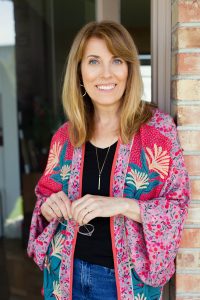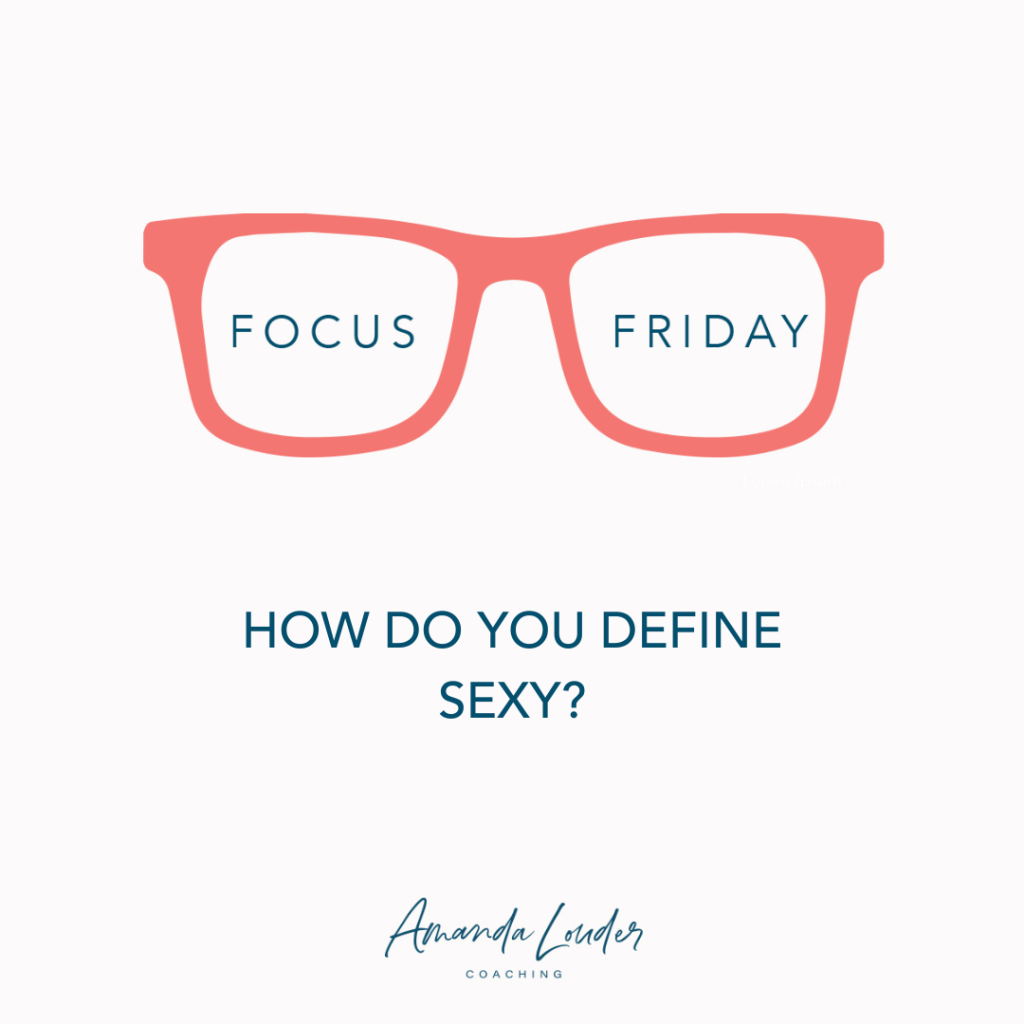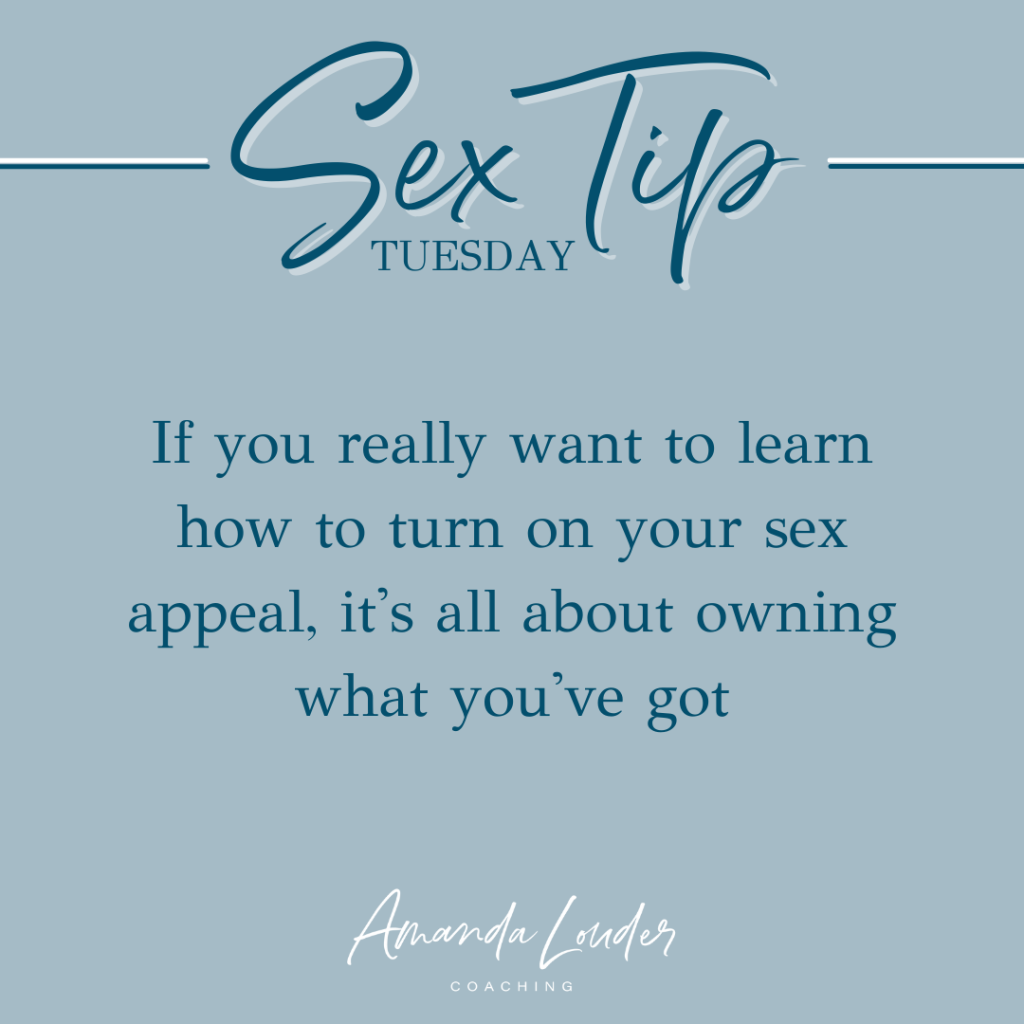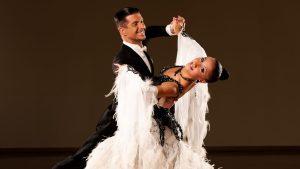
This is part one of an amazing interview I did with fellow life coach Julie Balkman. I really wanted to do this interview with Julie because I think a lot of our young adults are really struggling in dating and moving into relationships and into sexual relationships. Whether you’re a young adult, either single and dating or newly married or you have young adults, even if you have been married a long time, I think you’re going to find some really good, valuable insights into why things are the way they are for you in this episode. Don’t miss part 2 coming next week.
Julie Balkman, founder of the 100 Interviews Project and expert panelist for the LDS dating app Mutual, is a dating expert and certified life coach who helps young adults get out of the dating game and into a real relationship that lasts. The dating game often continues into engagement and marriage, so she also works with newly married couples, helping them build a relationship based on real love and intimacy. With eight years experience working with hundreds of young adults (single and married), she has seen firsthand the desire and need for clear answers, actionable steps, and real results. You can find her at juliebalkmancoaching.com and @lifecoach.julie on Instagram.
Show Notes:
Follow Amanda on Facebook and Instagram.
Join Amanda’s Private Facebook Group.
Show Summary:
Amanda: Today’s interview is a good one. I really wanted to have this interview with Julie Balkman because I think a lot of our young adults are really struggling in dating and moving into relationships and into sexual relationships. So this is a great interview.
It ended up going over an hour, so I’ve broken it up into two different episodes. Part one is this week, part two will be next week, just because you’re used to 20 minutes or less. And I didn’t wanna throw one at you that was over an hour, so I thought it would be better to break it up into two, but it’s really good.
And whether you’re a young adult, either you know, single and dating or newly married or you have young adults. Um, even if you have been married a long time, I think you’re gonna find some really good, valuable insights into why things are the way they are for you in this episode.
So don’t dismiss it if you’re not a young adult, but I think it would be really good for you too. So let’s get to the interview.
Welcome to the podcast everyone. I am so excited to be talking to fellow life coach Julie Balkman about the sexual conditioning of young adults, single and newlywed. So welcome, Julie.
Julie: Thank you. I’m so excited to talk about this subject.
Amanda: So why don’t you introduce yourself to my audience.
Julie: Yes. As you said, I’m a life coach and most of my clients are young adults. Uh, typically between the ages of 23 and 35. I am known for helping people get out of the dating game and into a real relationship that lasts.
Amanda: Love that. Anything you wanna share with us about your personal life?
Julie: Uh, personal life. Um, how I came to life coaching is a personal story. In 1987, I was married and I promised myself I would never get a divorce, and, um, 27 years later I was divorced. And devastated. I was in a lot of pain. And, uh, I took some time to, um, heal and process what happened, and I learned during that time, and I’ve come to believe, personally, not that anyone told me this, but I believe looking back over the relationship, that the best time to save a marriage is in the dating or newlywed phase of that relationship.
Amanda: And tell me why that is.
Julie: Uh, because I believe that that is the time to practice and learn. I mean, it’s okay to want a happily ever after, but if you don’t know how to get that, you won’t. And I learned the hard way. Today I am currently married to my soulmate. We’ve been married for six years. I’ve been coaching for eight. And, uh, I am in practice with my clients how to do a real relationship and learning relationship principles and applying them to my life.
Amanda: Yeah. I love that. I think so many times we just, we kind of think the marriage, like the day we get married is kind of the end, right? Like, we’ve set all these goals. And marriage is the end. And really like when you get married, that’s just the beginning. And those first few years, I mean, I think marriage is always, like you’re constantly having to learn new things and skills. Right. But those first few years are so critical in learning how to be married and the skills and tools that you need in order to make it successful.
Julie: Yes. Yes, absolutely. I mean, I, if I were to, um, say like, what is my life mission? I think it would be like to decrease divorce in a church that believes in eternal marriage.
Amanda: Yeah. Yeah. And don’t you think in order to do that we need to, uh, like really do dating a little bit differently than we’ve been doing it?
Julie: Oh, yes.
Amanda: Yes. And also understand that there’s, I think, um, so many times we think that marriage is just supposed to be blissful all the time. And if it’s not, then there’s something wrong or we married the wrong person. And what I think more people need to understand is that, I think it’s Dr. David Sharsh that says marriage is a people growing machine.
Julie: Yes.
Amanda: It’s really what helps us. It pressures us to grow and to change, and if you don’t have skills and tools to know how to do that, it’s gonna make things a whole lot harder.
Julie: Yes. I love that. And it also sort of annihilates that idea that you need to marry someone that you’re compatible with because then it’s easier.
Amanda: Well, I think it can be easier. So I, like you, um, have been divorced and remarried and I always tell people, like my first husband and I could have made it work if he, it was more him cuz I was doing what I could, but he was willing to grow and make changes and we, like, we could have made it work, but he was unwilling to do that while we were married.
And while it’s been so much better in this marriage from the very beginning, like we are both committed to growth. And, and growing individually as well as growing together. And I think that is one of the things that makes our marriage work so much better than my first marriage is that both of us are committed to that.
Julie: Yes. Yes. And that applies to dating, committing and to like be willing. If I’m in the dating phase of my life, am I dating because I’m supposed to and it’s a chore, an assignment, a responsibility? Or am I dating becauseI want to and if I want to, what does dating mean to me? And it’s that commitment to grow.
And to get to know people in a way that’s like, Hey, I am willing to potentially get hurt and or look like a fool for love.
Amanda: Yes. Yes. I think that’s one of the, so I have young adult children. I have, um, a 23 year old, a 21 year old. I have one that’s just about to graduate, but, and the, and I have two younger as well, but the things that I tell, one of the biggest things that I tell them, cuz you know, they’re all in that dating for, well, the older ones are dating to look for a marriage, right? They always ask me like, what do I need to be looking for? And I’m like, you need to be looking for someone who’s willing to grow, who’s willing to look at themselves and like when confronted with a problem and not go into total shame, like, I’m such an idiot. I shouldn’t be like this. Or not blaming you or someone else, but like, Oh, okay. Let me take a look at that. Let me own what part is mine and let me see what I need to do to fix things, right?
Rather than like, you know, the shame blame game that so many of us get into.
Julie: Yes. That’s part of the game. It’s the shame, blame. I actually teach those two things, two things to look for in a potential partner. And you just said it. A willingness to learn, willingness to be wrong. That’s it. And you combine those two and it’s, I’m willing to grow and it’s really what like, Christ taught when he said, I fulfilled the law of Moses. You don’t have to live that way anymore. I want you to live with a broken heart and a contract spirit, and that’s the new sacrifice.
Amanda: Yes.
Julie: And he introduced that, and that’s like, well that’s scary because that requires a lot of responsibility and growth.
Amanda: Yes, it does. Okay, so I am so excited about this conversation because as this coach for young adults, singles, newlyweds, you kind of run into some different groups and we’re gonna talk about these different groups and what you’re seeing. And what you’re seeing when it comes to their sexuality.
So one of the things that you said when we were doing our prep work was there’s so many of them that are afraid, ashamed, or embarrassed to wake up their sexuality.
Julie: Yes. Oh my goodness. Fear of being seen as desperate.
Amanda: Ooh.
Julie: And sexuality definitely plays a role in that as well.
But I’d like to start with the group that is like, how can I feel sexy? How can I embrace my sexy? How can I think of myself as sexy?
Amanda: Yeah. Yeah. So when these young adults come to you, what do you tell them about them?
Julie: Uh, well, usually they come in the form of how do I get outta the friend zone? Or how do I create like chemistry between me and someone else? Um, how do I progress in this relationship? And oftentimes it’s related to that part of you that’s like, oh, I’m afraid of being sexy, or, I don’t know how to be sexy. I don’t see myself as sexy. Um, and what do I say to them? Is that your question?
Amanda: Yeah.
Julie: Well, I start with like, well, how do they define sexy?
Amanda: Yes. That’s so important.
Julie: And usually it’s associated with body like, well, I don’t like my body. Or I don’t like how I look. I don’t think I look sexy enough, or I’m not, you know, this enough or that enough. Take your pick. We all know that kind of self-talk and language.
But I also go into, um, understanding like what sexy means to them. And when I ask a person, like if they see someone and they think that person is sexy, oftentimes it’s associated with confidence.
Amanda: Yep.
Julie: With watching someone do something they’re passionate about.
Amanda: Yes.
Julie: Uh, seeing someone who is living independently, like, um, they support themselves financially. They’re emancipated from their parents’ influence when it comes to spirituality and, um, emotional, uh, regulation and many other things that like, they’re just. More mature and not as reliant on parents, which also I think contributes to confidence.
Amanda: Yeah. So when it comes to themselves, they’re looking at body, but when it comes to someone else, it’s not necessarily about that.
Julie: Yeah.
Amanda: It’s more about who they are as a person.
Julie: Yes, yes. Their ability to, um, connect on an emotional level. They find that sexy. Yeah. Uh, someone who takes care of their body, like eats healthy food, drinks water, um, moves their body outdoors, exercise. Someone who cares, someone who cares about sleep. You know that they get enough sleep and, uh, self-care is high on the sexy radar.
Amanda: Interesting. I love that. I think we’ve, I mean, just as a society have let media and corporations tell us what sexy is.
Julie: Oh, yeah, for sure.
Amanda: And we self-identify with that but that’s not what we look at necessarily. I mean, I think being attracted to the person that you’re with is important. But that’s of course not everything.
Julie: Yeah, I believe in chemistry and I think that it’s something that you really need to, um, find out. If you’re getting to know a person, you’ll know if there’s chemistry.
And a lot of people, you know, will say, oh, well I knew instantly that there was no chemistry and in my book, that’s okay. And I think a lot of people are getting shamed for that. Like, whoa, you didn’t take the time to get to know that person. And, um, I think that, uh, you can trust yourself AND as you get to know a person, they can become more sexy.
Amanda: Oh, absolutely. Absolutely. But I think that that initial attraction is really important. I mean, so many of the women, um, that I, you know, coach, they’re like, well, I’m not attracted to my spouse, or I get that from men too. I’m not attracted to my spouse. I’m like, well, were you ever.
Julie: Yeah.
Amanda: Because if you were never attracted to them, then we’re probably not going to, you know, be able to create that out of nothing. But if you were attracted to them, then what’s changed? Right.
And I know so many people who are like, well, I wasn’t really attracted to them physically, but we were really good friends, which is fine, but if there’s never that physical attraction, that sexual attraction there, it’s gonna be really hard to build that later, in my opinion.
Julie: Yes. Yes. I agree. And a lot of people say, well, I have all the emotional connection in this relationship, but I’m not physically attracted to this person. I think that it wouldn’t be fair to that person.
Amanda: No, it’s not. It’s really, really not.
Julie: I’ve also, speaking of um, sexy, I’ve also noticed that a lot of people, um, highly rate a sense of humor as sexy.
Amanda: For sure. Yeah, for sure. We love to laugh. I love laughing because, so I heard on a podcast once that true laughter is not something you can fake. Like we can like, ha ha. That’s so funny. Right. But like true, like unabashed laughter is not something that you can fake.
Julie: Yeah.
Amanda: And if you are connecting to someone in this like truest sense, that’s totally sexy.
Okay, so is there anything else like you feel like we need to address with this first group? Like how to feel and be sexy and they don’t know how to do that.
Julie: I ask them about, you know, the ones who are like focused on their body cuz if you are thinking that you’re not sexy, I think that typically people go to their body and their looks.
Amanda: Totally. Yes.
Julie: So we talk about that, like, you know, when do you feel sexy? Is there something in your closet that when you put it on you feel more sexy? Yeah. Um, how do you move your body? Have you looked at yourself without clothes on and like really just looked and appreciated, and felt grateful and like, yeah, hey, look at these cool boobs I have this, uh, you know, awesome butt or you know, and it doesn’t have to be like the magazine perfect, but just that you are looking at yourself with new eyes.
Amanda: Yeah.
Julie: And you’re looking for the sexy in you. And it starts with gratitude and an awareness that like, wow, look at what I have, this great body.
Amanda: Yeah. And not comparing. Comparing is totally the thief of joy.
Julie: I think it’s, and yet comparing is how we see, I mean, if you wanna understand black, put white next to it.
Amanda: Yes.
Julie: And if you’re going to use comparing to compare and contrast and define what you want and define what feels good for you, then it’s helpful. But if you’re just comparing and telling yourself that you’re never enough and you can never measure up, yeah, that is the thief of joy.
Amanda: I love that. That’s a great distinction.
Okay, so second group. What are you finding in the second group?
Julie: Second group is similar and that is how do I turn on my sex appeal? And that would be like, uh, how do I dare to allow someone else to see or think of me as sexy. So one is, how can I think of myself as sexy? And two is, how can I believe that others would think I’m sexy?
Um, and how do I be okay with turning someone on or being turned on?
Amanda: I think this one. I think even thinking back to when I was a young adult, well, uh, I liked being able to turn people on, but I think so many young adults because of how we talk about sex within the church and you know, it’s very fear-based, that they’re afraid of their sexuality in so many ways, and afraid that if they awaken this part of themselves, then it’s going to lead them straight to hell. So if someone else finds them sexy, then they’re leading someone else to hell and they’re gonna go down with them, right?
Julie: Yeah, yeah. And then believing that like, oh, wait a minute, someone’s turned on by me, I’m not sexy, like I’m confused and I don’t know how to then be me in this situation. Because I don’t know me as a sexy person, but wait a minute, someone finds me sexy. So that’s like, it’s just a little bit of a knee jerk like, oh, I am a deer in the headlights. What do I do with this?
Amanda: Yes.
Julie: Because it feels good and you know, like you said, I liked knowing that I was turning someone on.
Amanda: Yeah, I did. I did. Probably too much.
Julie: But if you don’t know what to do with that or how to, you know, what do I do with this information? It’s kind of fun, but it’s new or it’s scary or whatever.
Amanda: Yeah. Well, and I think it goes back to that confidence thing like, I felt good in my own body. I felt good about myself. I knew I was smart. I thought of myself like I, it wasn’t like an arrogance, but it was just a confidence, like I knew I was beautiful. I knew that men could find me attractive. And I mean, some men didn’t, crazy, I know, but that’s ok. But I knew that some men did. So that brought that out in me. But it was like that belief that this is who I am. This is part of who I am. It’s not the whole me cuz there was so much more, but that’s part of who I am, just as an individual, that embracing of my sexuality, that’s what turns on the sex appeal.
Julie: Right. And did that feel like power?
Amanda: Yes. Because it was, I mean, I think we look at power very interestingly, like power is really about agency and the ability to act according to our integrity instead of, and what we often think of power is power over someone and trying to take something away from someone else, take someone else’s agency away.
But I wasn’t taking any, I like people could think what they wanted, but it was very empowering to me to think and feel that way about myself. That felt very agency driven for me.
Julie: Yes. That contributes to your strength.
Amanda: Yeah, and there were lots of men who found that very sexy, that I was strong and like carried myself well. And I knew that I was smart and like I didn’t feel like the need to like dumb myself down to make them feel better about themselves, or I was like, this is just who I am.
Julie: Right. And you’re owning it.
Amanda: Owning it, yeah. Yeah. And I think like if that’s really, if you really want to learn how to turn on your sex appeal, it’s owning what you’ve got. That confidence and that’s sexy.
Julie: Yeah. And being able to differentiate, as you said, uh, between power, that is imitation love and power that is your strength and owning your own sexuality.
Amanda: Yeah. But it was, and really, I mean, so I talked to my clients about, you know, embracing your sexuality and it’s really like having a relationship with it. Do I think about my sexuality as something that can overtake me, that I have no control over? Or is this just part of me that I can choose and that I can own and embody when I want to?
Julie: Yes. Yes. I love that. Um, when I hear you say, this is something that I can choose and embody when I want to, that contributes to confidence. It’s knowing that you have the freedom to make decisions. Knowing that you have the freedom to get to know yourself, how and when and where you choose to.
Amanda: I love that. So is there anything else you think we need to address on how people turn on their own sex appeal?
Julie: Yeah. How do you turn on your sex appeal? Well, I would invite those who are asking me all the time, how do I get out of a friend zone? I would invite you to turn on your sex appeal and like from your coaching experience, Amanda, how would you tell a young adult to turn on their sex appeal?
Amanda: By like being confident and owning and making choices with that. Like really being in integrity with themselves.
Julie: Okay. So start making choices, choices that align with your integrity.
Amanda: Yeah. And I think, so I love that you say friend zone because, so my teenage son, you know, he likes girls and, he’s 15, and he’ll be like so devastated. He’s like, she friend zoned me. I’m like, that is the best place to be right now. You wanna be their friend. Right.
But I think what, and I see this in a lot of the men that I coach, is when you’re validation seeking, when you are like coming from a place of neediness, that’s not sexy.
But when you are self-validating, when you’re owning what you’ve got, when you’re not needing something from someone else, but you are really being.
Again, making choices and being an agent unto yourself, then that’s what’s sexy.
Julie: Yes, absolutely. In fact, I call that the most dangerous way to date is needy.
Amanda: Oh, 100%.
Julie: When you go on a date, and honestly we’ve been taught that this is what dating is, is that like, I need you to like me. And uh, I would say that that is your job. It is your job to like you and to show up on a date liking you. And when you’re capable of doing that and you recognize on some level that you are loved and you’re amazing outside of the date that you’re on, when you’re not needing that other person to like you. Which, by the way, is focused on you, you, and you.
Amanda: Yes.
Julie: Then you’re free to actually get to know them.
Amanda: Yeah.
Julie: Because you’re not so concerned about the giant elephant that is sitting between the two of you on a date, and it’s all about, I need you to like me.
Amanda: Right. Which is, I mean, one of the reasons why we fall in love with people is because they reflect back to us all the things that we like about ourselves.
I mean, if someone was like, no, I don’t like this, I don’t like this, like, you’re not gonna fall in love with that person.
Julie: No, no.
Amanda: But when they reflect back to you all the things that you like, but that means you have to show up. You have to like, you have to like yourself and you have to show up.
Julie: And that’s high risk.
Amanda: It is high risk and it’s very vulnerable.
Julie: It’s vulnerable. And it’s sexy.
Amanda: It totally is. It totally is.
Okay, let’s move on to your third group.
Julie: Those who want to know how to get sex educated, meaning that they are in that I haven’t grown up quite yet in really knowing and understanding my body in a sexual way. And what’s okay. And you know, can I wake up this part of myself and learn about myself as a sexual being without having sex?
Amanda: Yeah. Okay. So what do you tell ’em?
Julie: Oh, well, uh, I start with like, do you know your body? Do you know your sexual parts? Have you looked at them? Have you named them? Do you know it’s so important what’s going on down there? Can you talk about it? Is there one person on the planet that you could talk openly with about, like, anything when it comes to sexuality?
And like what do you wanna know and where do you wanna go with this? Once you do know. And are you worth getting to know in that way? Can you handle this? Can you grow yourself up into a sexual being rather than a child? It’s really owning your adult body. And it kind of leads into my second group, which is really defining for yourself, like, here’s what I’m willing to do and here’s what I’m willing to not do. And how do I define that for myself first and get really clear with me. What that means to me and why.
Amanda: Yes.
Julie: And then how do I tell someone else?
Amanda: Yes. So, um, Jennifer Finlayson Fife, who’s a mentor of mine, so she did her PhD research on LDS women and how they related to their sexuality and their agency in their sexuality and how that translated into their marriage. And I love that the women who understood themselves sexually and made choices from an integrity based position of how to engage with their sexuality, did better in their marriages, transitioned into marriage much better than the women who didn’t.
And behaviors might look the same, but the motivations behind those behaviors were very different. So, you know, there were women who, um, you know, never did anything with, you know, their spouse or their future spouse or other men, um, from a position of integrity, like, this is what I’m choosing for myself.
And then there were other women who was like, well, this is what the church told me to do. This is what my parents told me to do. And those women didn’t transition into marriage very well at all. But the women who actually owned it, some women masturbated as a way to get to understand their body, some didn’t, but it was an integrity based decision for them rather than like, this is what I should or shouldn’t do.
Julie: Yes. Yes. I love it. Once again, we’re talking about confidence here. And taking the responsibility for making decisions for yourself, that is sexy.
Amanda: Totally is. It’s also mature. It’s also what adults do, right? So we’re not looking at that immature way of being, that childlike way of being, where we’re referencing everyone else and their opinions and what they think we should and shouldn’t be doing. We’re referencing internal and what is in alignment with our values, our morals, our integrity, and making choices based on that.
Julie: Yep, yep. Sex educated. I love it. Yes!
Amanda: I love it. So good.
Okay, everyone that is part one for you. I’m excited to bring you part two next week. If you have any questions, feel free to reach out to me. You can email me amanda@amandalouder.com or DM me on Instagram @amandaloudercoaching, and we’ll see you next week.
Bye-bye.





